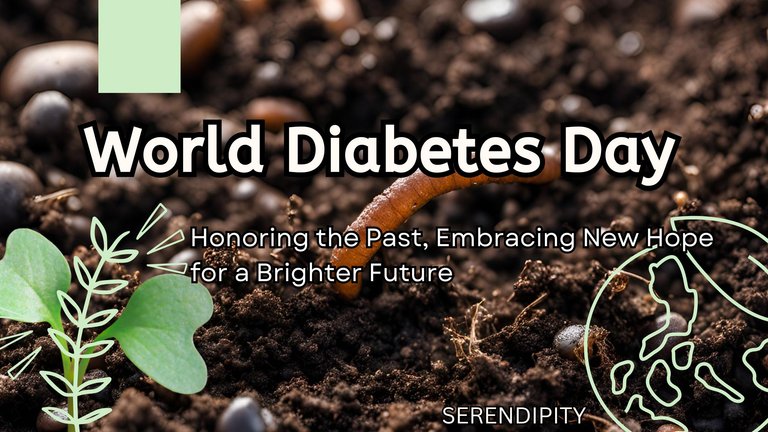World Diabetes Day: Honoring the Past, Embracing New Hope for a Brighter Future

Every year, November 14 marks World Diabetes Day, a time to reflect on the extraordinary strides that we have made in diabetes care and to renew our commitment to improving the lives of millions worldwide who still live with this condition daily. Today, chosen in honor of Sir Frederick Banting's birthday—one of the co-creators of insulin—is a day to celebrate how far we’ve come since the early 1920s, when diabetes was often considered a death sentence.
In the years after insulin’s discovery, diabetes management has dramatically evolved, empowering people to live long, fulfilling lives. But for many, this journey is still laden with challenges. Insulin was a ground-breaking innovation, but diabetes remains complex illness and, sometimes, unrelenting, particularly for those with type 1 diabetes.
For people with type 1 diabetes, life can sometimes feel like a balancing act on a tightrope. Living on the edge knowing that it only takes one complication for life to completely take a different turn.
Even with all the tools, medications, and awareness we now have, fluctuating blood sugars remain a tough reality, which increases the risk of severe complications. Research shows that people with type 1 diabetes face a heart attack risk ten times higher than the general population. The chance of experiencing blindness is nearly 20 times higher, and diabetes-related amputations are far more common than they should be.
Beyond the physical impact, the psychological toll can be intense. Depression rates among those with type 1 diabetes are twice as high, with anxiety about blood sugar levels often clouding daily life. Add the sobering statistic that type 1 diabetes may cut life expectancy by 15 years or more, and it becomes clear that this community bears a heavy burden.
But even with these daunting numbers, there's hope—a hope fuelled by new research, evolving guidelines, and a growing call for better options.
A New Era of Possibilities: Total Carbohydrate Reduction (TCR)
Dietary management has long been a cornerstone of diabetes care, but for years, it leaned heavily toward recommendations that didn’t serve everyone equally well. The “one-size-fits-all” approach is finally being questioned, particularly when it comes to something as personal as diet.
Recent studies show that Total Carbohydrate Reduction (TCR) could be a game-changer, offering benefits not only for those with type 2 diabetes but for type 1 patients as well.
While reducing carbohydrates is widely accepted for type 2 diabetes, it’s been a slower journey to apply these same principles for type 1. Outdated guidelines and a general hesitancy around dietary change have slowed progress. Yet, TCR offers tremendous promise in improving blood glucose stability and reducing those severe complications that type 1 patients often face. Imagine a life with fewer blood sugar swings, reduced complications, and a glimmer of hope for fewer hospital visits and more moments enjoying life.
The vision here is bold but crucial: every person with diabetes deserves access to these options, and every individual should be given the tools to achieve a normal A1c—a target that no longer feels out of reach.
Celebrating What We’ve Accomplished and Where We’re Headed
This World Diabetes Day, let’s remember the courage of the pioneers who changed diabetes care forever and celebrate the progress being made to ensure that every person with diabetes can live with less fear and more freedom. The call for change is clear, and it's assuring to see more healthcare providers open to discussions around TCR and other promising approaches.
While we honor the past, let’s stay hopeful about the future. With each passing year, we’re closer to making life with diabetes less of a daily struggle and more of a manageable journey. The growing awareness, better options, and the incredible support from the diabetes community are all reminders that, together, we can push for a world where no one feels limited by their diagnosis.
Here’s to progress, hope, and the resilience of every person living with diabetes. This World Diabetes Day, let’s make sure every person with diabetes feels seen, supported, and optimistic about the future ahead.